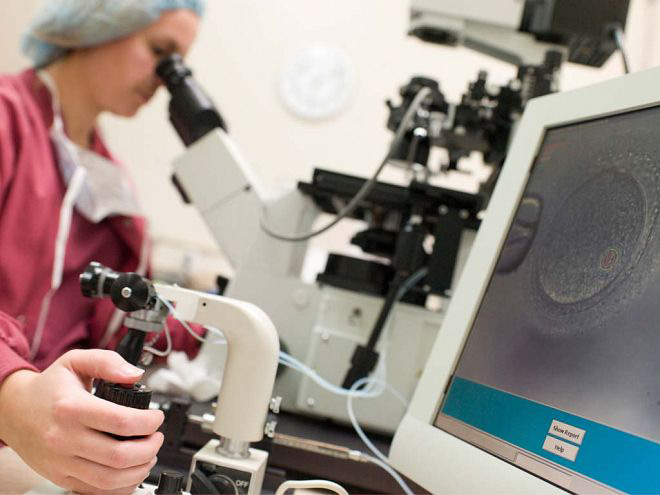Best infertility treatment in Indore )
 Fertility tests
Fertility tests
If you've tried unsuccessfully to get pregnant for a year or more through regular unprotected sex, it’s time to see your GP. If you're a woman over 35, or if you think that either partner may have a fertility problem, see your GP after six months of trying.
A fertility problem could be because you've had surgery that may have affected your reproductive organs, or because you've had a sexually transmitted infection (STI), such as chlamydia, that may have damaged your fertility.
Many couples with fertility problems go on to conceive, with or without fertility treatment.
What to expect
If you make an appointment to see your GP because you're having trouble becoming pregnant, they will ask how long you’ve been trying. If it's been less than a year or you haven’t been having unprotected sex regularly, and there is no reason to suspect you may have a fertility problem, your GP may recommend you keep trying for a while to see if you conceive naturally. Having regular sex means having sex every two or three days throughout the month. You can find out more about maximising your chances of getting pregnant.
If you've been having regular unprotected sex for more than a year, your GP may recommend a range of tests to determine what's stopping you from conceiving.
Fertility tests
This page lists some of the most common initial fertility tests. Your GP can refer you for these tests, which will usually happen in hospital or at a fertility clinic.
Sperm test
In about one-third of cases, fertility problems are due to the male partner. Sometimes, a lack of sperm or sperm that are not moving properly can cause a failure to conceive. Your GP can arrange a sperm test. The male partner will be asked to produce a sperm sample and take it for analysis, probably at your local hospital.
Blood tests to check ovulation
Levels of hormones in a woman's blood are closely linked to ovulation, when the ovaries release an egg into the fallopian tubes. Hormone imbalances can cause ovulation problems, and a blood test can help determine whether this is happening. Going through a phase of not having periods, or having irregular periods, are also signs of ovulation problems. The most common cause of ovulation problems is polycystic ovary syndrome.
Test for chlamydia
Chlamydia is the most common STI in the UK. It can cause pelvic inflammatory disease and fertility problems. Your GP can refer you for a test for chlamydia. This can be a urine test or a vaginal swab.
Ultrasound scan
An ultrasound scan can be carried out to check the woman's ovaries, womb and fallopian tubes. In a transvaginal ultrasound scan, which takes place in hospital, a small ultrasound probe is placed in the vagina. This scan can help doctors check the health of your ovaries and womb.
Certain conditions that can affect the womb, such as endometriosisand fibroids, can prevent pregnancy from happening. The scan can also check for blockages in your fallopian tubes (the tubes that connect the ovaries and the womb), which may be stopping eggs from travelling along the tubes and into the womb.
X-ray of fallopian tubes
This is called a hysterosalpingogram (HSG). Opaque dye is injected through the cervix while you have an X-ray. The dye will help your doctors to see if there are any blockages in your fallopian tubes. Blockages can prevent eggs passing down the tubes to the womb, and so stop pregnancy occurring.
What's next?
These tests will uncover a cause in around 80% of cases of persistent failure to become pregnant. In the remaining 20% of cases, no clear cause can be found.
Whether or not a clear cause is found, your GP can talk you through the next steps. This may include referral to a fertility clinic for further investigation or treatment.
If you’re suffering from infertility; If you’ve given up your hope for finding proper treatments, then you should Know that, having the best medical experts and facilities, Iran is the best place to see; your solution.
Submit Comment